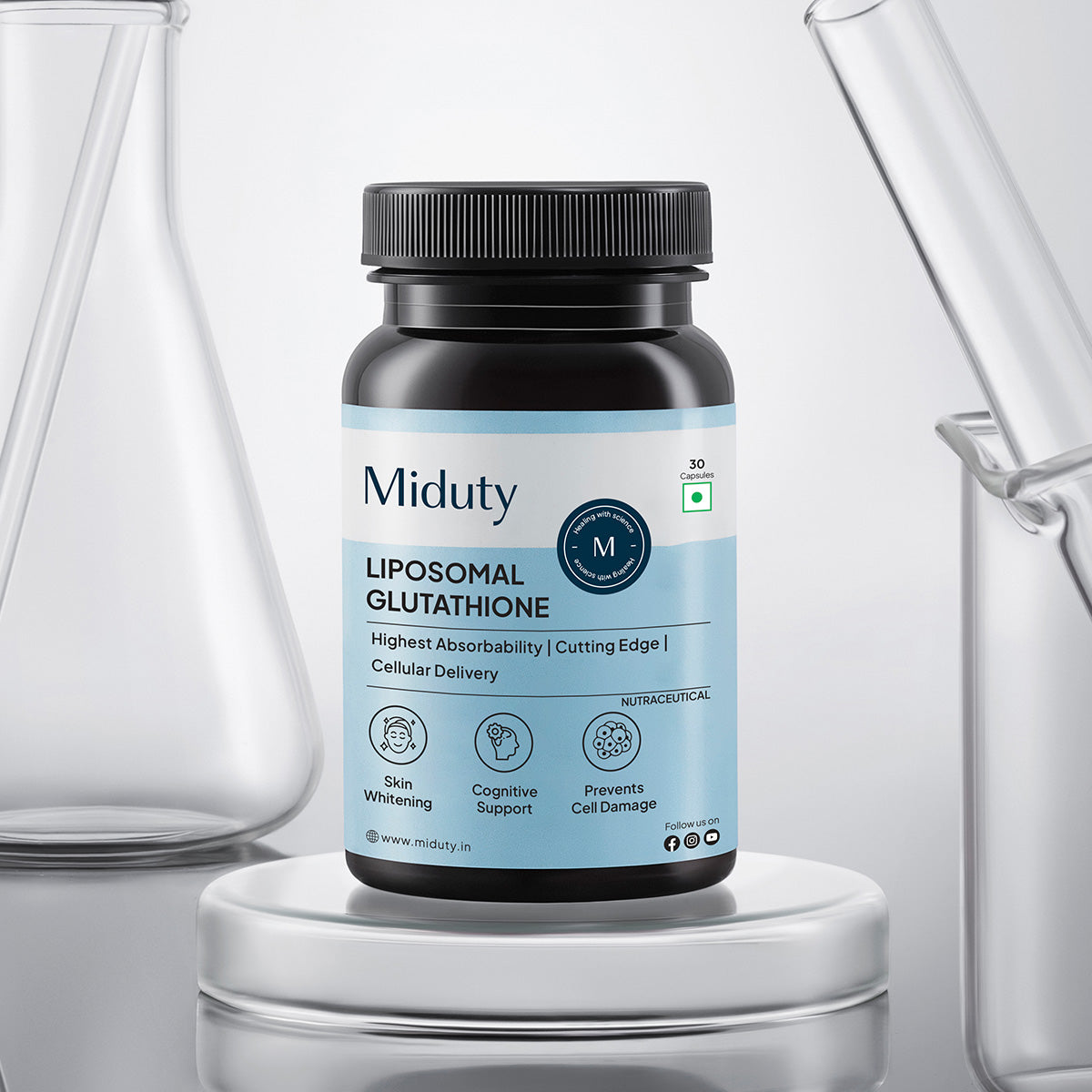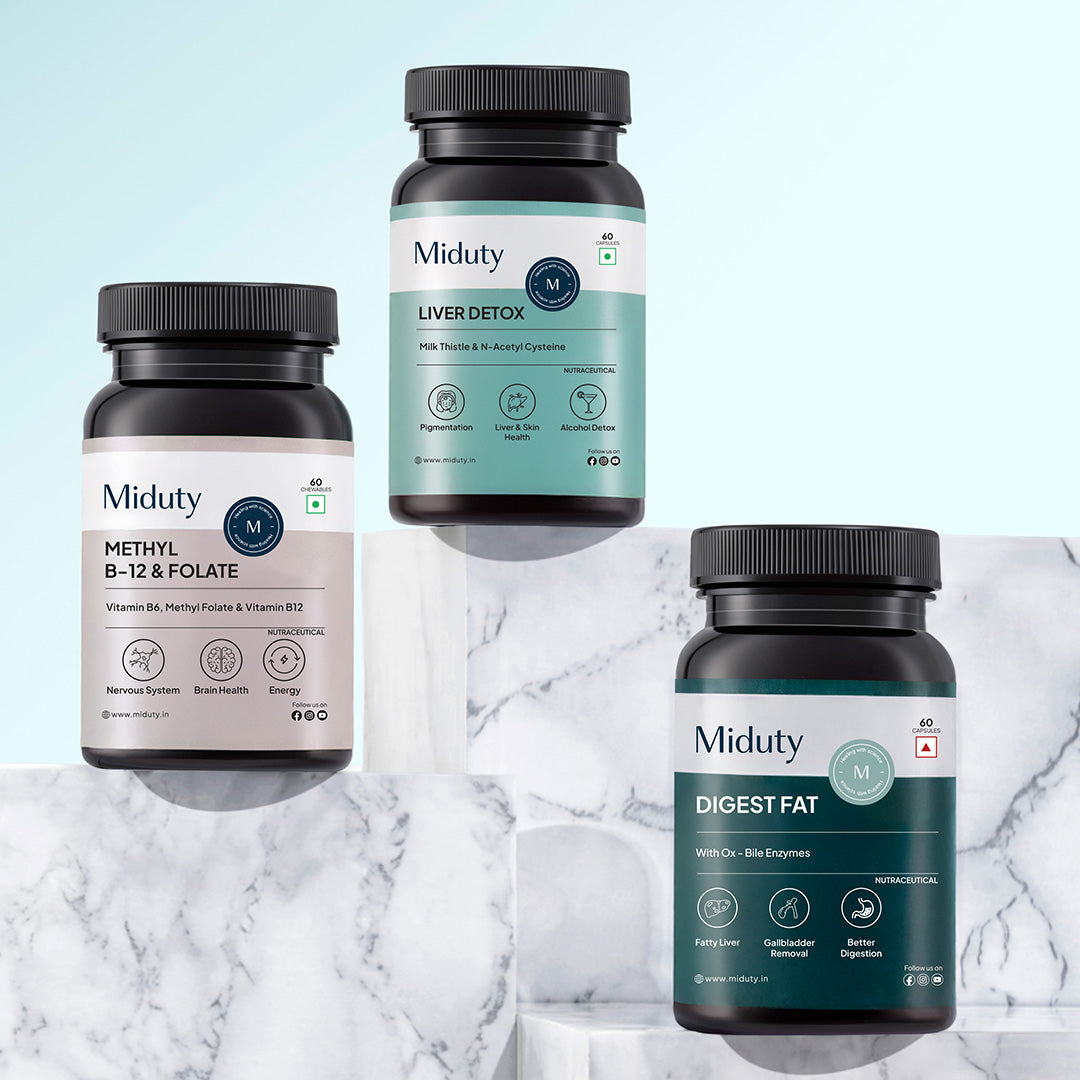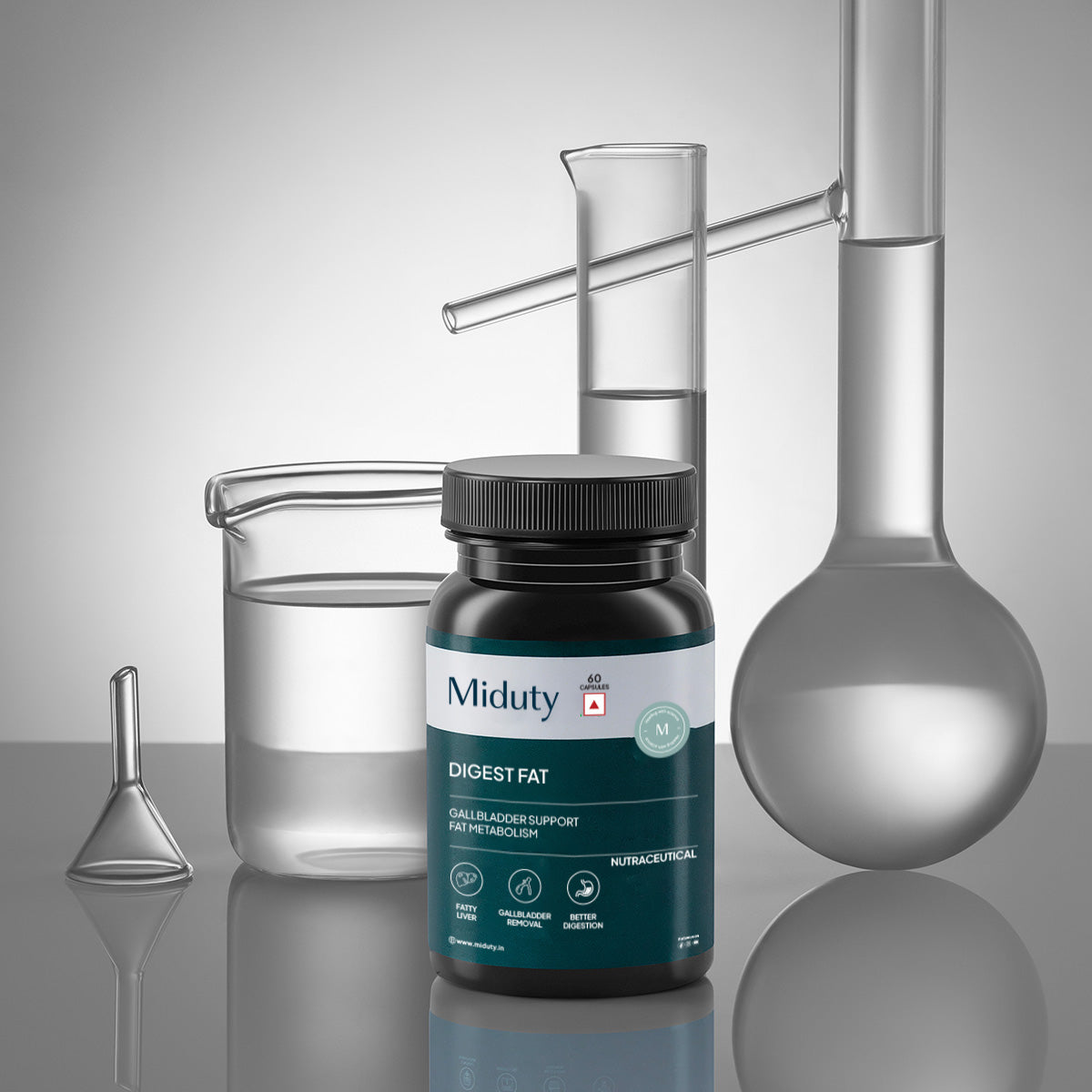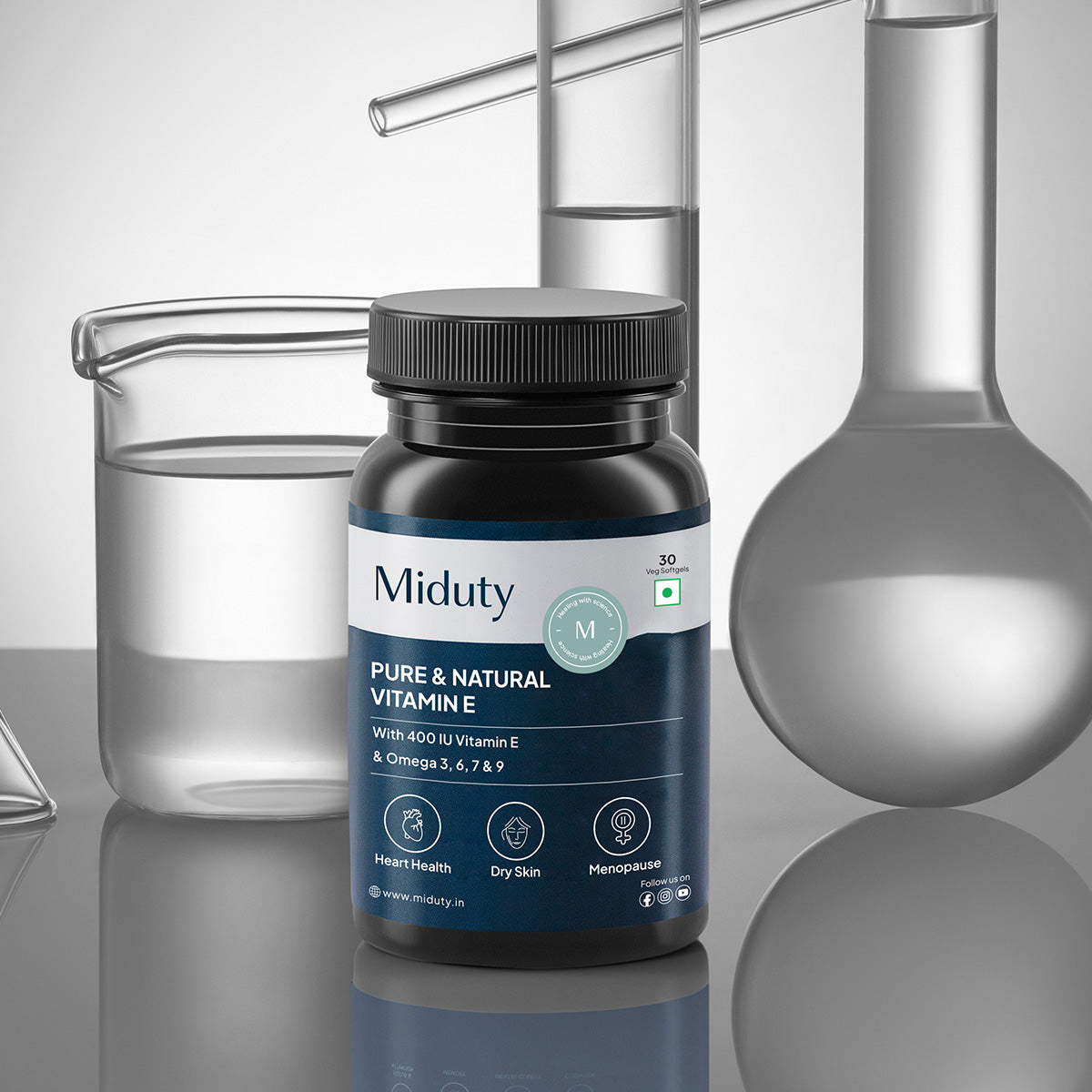
Can Alcoholic Fatty Liver Be Reversed? - Stages, Symptoms, Treatment, Diet and Prevention
Key Takeaways
AFLD Overview: Alcoholic Fatty Liver Disease (AFLD) results from excessive alcohol consumption leading to fat buildup in the liver, which can progress to more severe liver conditions.
Symptoms: Early signs include fatigue and abdominal discomfort, while advanced stages can lead to jaundice, swelling, and confusion.
Treatment: Key steps include quitting alcohol, limiting sugar, adopting a liver-friendly diet, and using supplements like Milk Thistle and N-Acetyl Cysteine.
Lifestyle: Effective management involves diet changes, regular exercise, and professional guidance to support liver health and recovery.
Ever taken a sip of your favorite cocktail, enjoying the taste as it goes down, only to wonder what it's doing to your body? We often think about the buzz, the fun, or even the hangover, but how often do we consider our liver? That's the quiet, hardworking organ that's doing overtime to process every drop of alcohol you consume.
While an occasional drink might not do much harm, regular alcohol consumption can lead to a condition known as Alcoholic Fatty Liver Disease (AFLD). This is where things start to get serious, as your liver begins to store fat it can't process, slowly but surely compromising its ability to keep you healthy.
So, what exactly is happening in your liver when you enjoy that glass of wine or beer? How can you recognize if you're on the path to AFLD? And more importantly, what can you do about it?
In this blog, we're diving into the symptoms, treatment options, and dietary changes you need to know to protect your liver—and your overall health. Let's uncover the truth behind those sips and how you can keep your liver in tip-top shape.
What is Alcoholic Fatty Liver Disease?

Alcoholic Fatty Liver Disease (AFLD) occurs when fat builds up in the liver due to excessive alcohol consumption. Imagine your liver as a sponge, soaking up everything you consume. Now, when you indulge in a bit too much alcohol, that sponge starts to saturate—not with water, but with fat.
This is the essence of Alcoholic Fatty Liver Disease (AFLD), where your liver, overwhelmed by alcohol, begins to store fat it can't process.
At first, this buildup might seem like a minor hiccup, but it's the first stage of something much more serious. AFLD starts silently, often with no symptoms, but if you keep pushing your liver to the limit, it can progress to Alcoholic Hepatitis, where inflammation takes over.
Ignore it further, and you could be looking at Cirrhosis, where your liver becomes permanently scarred and loses its ability to function.
But here's the catch—AFLD is reversible if you catch it early. By recognizing the stages and taking action, you can stop the disease in its tracks and even reverse the damage.
In the following sections, we'll explore the symptoms to watch for, effective treatment options, and how your diet plays a crucial role in managing and preventing AFLD.
What are the Stages and Symptoms of Alcoholic Fatty Liver Disease?
Alcoholic Fatty Liver Disease (AFLD) often begins with mild, easily overlooked symptoms. However, as the disease progresses, the symptoms become more noticeable and serious. Here's a breakdown of the symptoms by stage:

|
Stage |
Symptoms |
|
Early Stage (Fatty Liver) |
Fatigue: Feeling unusually tired or weak, often without a clear reason. Abdominal Discomfort: Mild pain in the upper right side of the abdomen. Weight Loss: Losing weight without trying, often due to loss of appetite. |
|
Moderate Stage (Alcohol Hepatitis) |
Jaundice: Yellowing of the skin and eyes, indicating liver inflammation. Swelling (Edema): Swelling in the legs or abdomen due to fluid retention. Loss of Appetite: Reduced desire to eat, leading to further weight loss. |
|
Advanced Stage (Cirrhosis) |
Severe Fatigue: Extreme tiredness that interferes with daily activities. Abdominal Swelling: Buildup of fluid in the abdomen. Confusion: Difficulty concentrating, memory issues, or confusion. |
What are the Treatments for Alcoholic Fatty Liver Disease?

If you've been diagnosed with Alcoholic Fatty Liver Disease (AFLD), it's time to take charge of your health with some game-changing lifestyle tweaks. Here's how you can start turning things around:
1. Stop Drinking Alcohol
The most important—and frankly, non-negotiable—step is to quit drinking. Alcohol is the main culprit behind AFLD, so cutting it out is like giving your liver a much-needed vacation. When you stop drinking, you give your liver the break it needs to start healing and flushing out the excess fat that's been piling up. [1]
2. Limit Sugar Intake
Next on the list is taming that sweet tooth. Sugary foods and drinks such as cakes, sodas, pastries, and juices can sneakily contribute to fat buildup in your liver, making it work overtime. By cutting back on refined sugars and fructose, you're helping your liver lighten its load, making it easier to return to business. [2]
To satisfy your cravings without compromising your liver health, consider natural sweeteners like stevia and xylitol. Stevia, derived from the leaves of the stevia plant, offers a sweet taste without calories and doesn't spike blood sugar levels.
Xylitol, a sugar alcohol found in many fruits and vegetables such as berries (like strawberries and raspberries), corn, mushrooms, and some leafy greens., can be a great alternative as it has a lower glycemic index and may even support dental health.
3. Adopt a Liver-Friendly Diet
What you eat plays a huge role in how well your liver can recover. Here's the alcoholic fatty liver diet you should focus on:
Healthy Fats: Swap out the bad fats for good ones - consume avocados, olive oil, and fatty fish like salmon. These healthy fats help reduce inflammation and support your liver's recovery. [3]
Avoid Sugar: Excess sugar can contribute to fat accumulation in the liver. Opt for natural, low-sugar alternatives. Consider choosing stevia, or xylitol as healthier sweetening options.
Increase Protein: Lean proteins, such as chicken, fish, and legumes such as lentils, chickpeas, black beans, and kidney beans, help repair liver cells and support overall health.
Cut Carbohydrates: Reducing refined carbohydrates, like white bread and pastries, can help manage blood sugar levels and prevent further liver fat buildup. [4] When cutting carbohydrates from your diet, consider incorporating protein-rich foods such as paneer. You can also enjoy dals (lentils) and salads rich in greens and healthy fats, such as avocado or nuts, to maintain nutrition while keeping carbs low.
Focus on Green Vegetables: Incorporate leafy greens like broccoli and kale into your meals. These vegetables are rich in antioxidants and nutrients that support liver function. [5]
Avoid Gluten: If you have a sensitivity or intolerance, avoiding gluten can help reduce inflammation and improve liver health. [6] For gluten-free options, consider millet roti, ragi ki roti, jowar roti, bajra (pearl millet), and brown rice. These alternatives are nutritious, high in fiber, and support overall health while being gentle on the liver.
4. Consider Liver Friendly Supplements
Supplements can be your liver's best friend in the recovery process:
Milk Thistle: This herb is like a protective shield for your liver, helping to reduce inflammation and boost liver cell regeneration. [7]
N-Acetylcysteine (NAC): NAC is a powerful antioxidant that supports detoxification, helping your liver fight off damage from toxins—including the alcohol you used to enjoy. [8]
Ox Bile Enzymes: These enzymes assist your liver in processing fats more efficiently by enhancing bile flow. This improved bile production aids in the breakdown and absorption of dietary fats, making it easier for the body to eliminate excess fat. By facilitating fat digestion, oxbile enzymes can help reduce liver strain and support overall digestive health, making them a beneficial addition for those with fatty liver concerns.[9]
By taking these steps, you're not just managing Alcoholic Fatty Liver Disease—you're giving your liver a fighting chance to heal and get back to its best self. Remember to check in with your healthcare provider before starting new supplements or making big changes to your diet to ensure they're right for you.
Conclusion
Recognizing the symptoms of Alcoholic Fatty Liver Disease (AFLD) early and seeking prompt treatment are crucial steps in preventing further liver damage and improving your overall health.
By paying attention to signs like fatigue, abdominal discomfort, or unusual weight changes, you can take action before the condition progresses.
Diet and lifestyle play a significant role in managing and potentially reversing AFLD. Adopting a balanced diet, maintaining a healthy weight, and incorporating regular exercise can greatly support liver health.
Most importantly, eliminating alcohol from your life is essential for allowing your liver to heal and recover.
Taking proactive steps to address AFLD and consulting with healthcare providers can help you make informed decisions about your treatment and lifestyle changes.
Your liver's health is a vital part of your overall well-being, so prioritize these actions to ensure a healthier future.
Frequently Asked Questions on Alcoholic Fatty Liver -
Q1 - Can AFLD be reversed by stopping alcohol consumption alone?
Yes, stopping alcohol consumption can often lead to significant improvement or reversal of AFLD. However, a comprehensive approach including diet, supplements and lifestyle changes is recommended for optimal recovery.
Q2 - How quickly can the liver recover after quitting alcohol?
The liver can begin to show signs of improvement within a few weeks of stopping alcohol, but complete recovery can take several months to years depending on the extent of liver damage and overall health.
Q3 - Can AFLD affect other organs or systems in the body?
Yes, chronic liver disease, including AFLD, can have systemic effects. It may lead to complications such as cardiovascular disease, kidney issues, and problems with nutrient absorption.
Q4 - How do you know if you have alcoholic fatty liver?
You might have alcoholic fatty liver if you experience symptoms like fatigue or abdominal discomfort, have a history of heavy alcohol use, and have abnormal liver function tests.
Q5 - How serious is alcoholic fatty liver?
Alcoholic fatty liver can be serious if untreated, potentially leading to inflammation, liver damage, or cirrhosis. Early intervention and lifestyle changes can help prevent progression.
References













